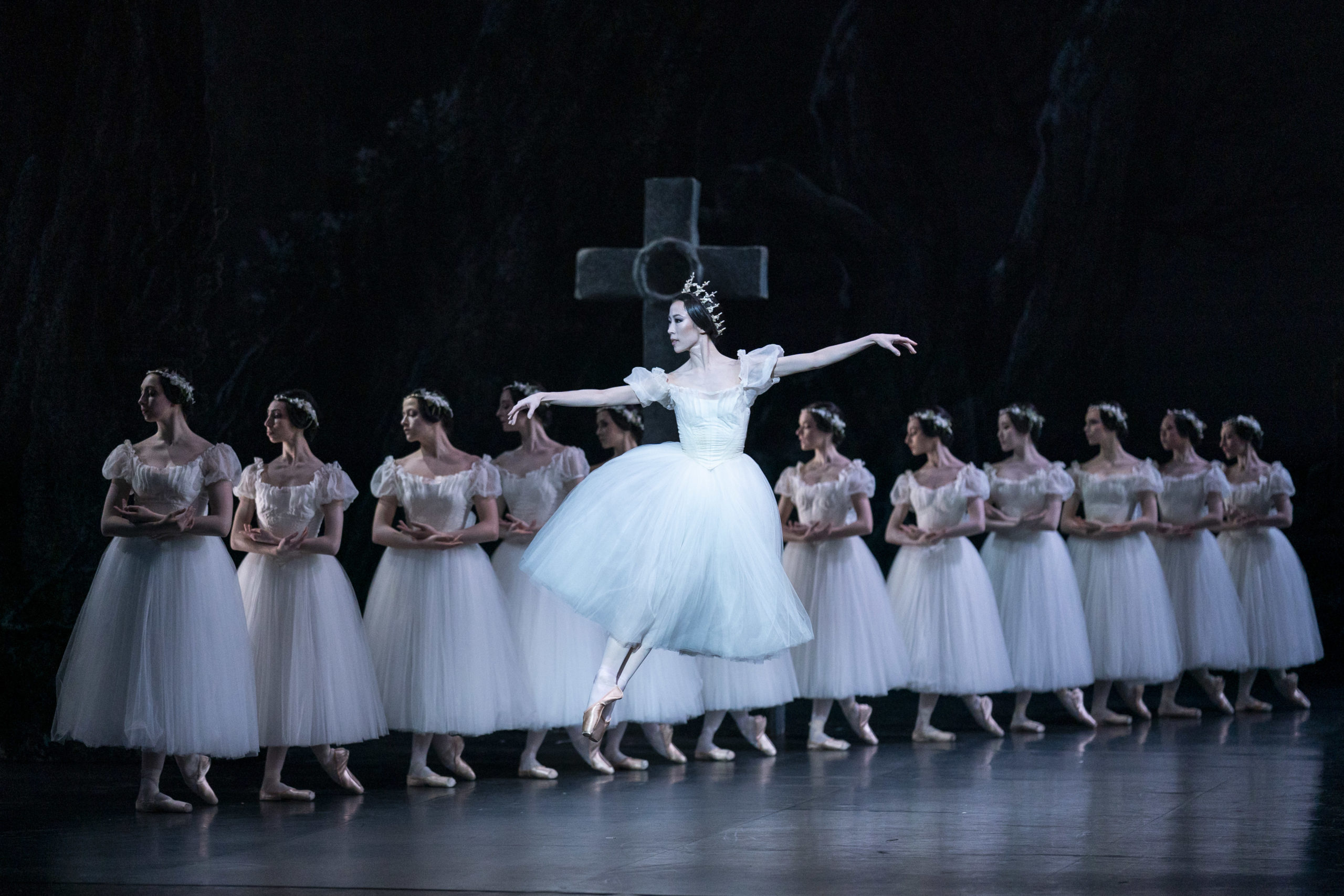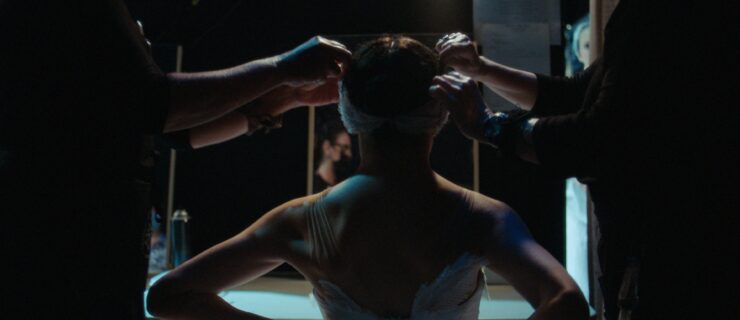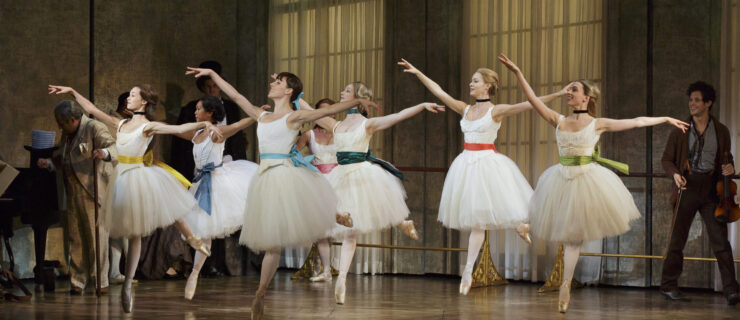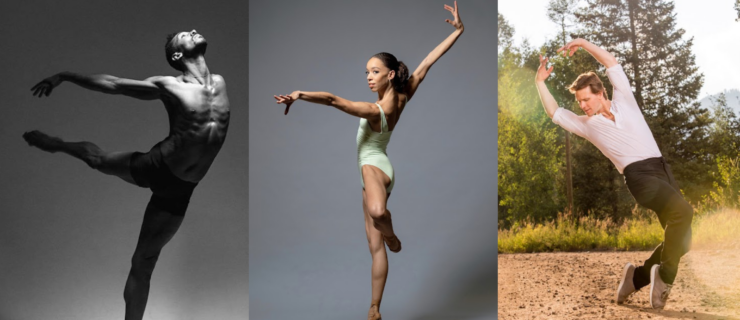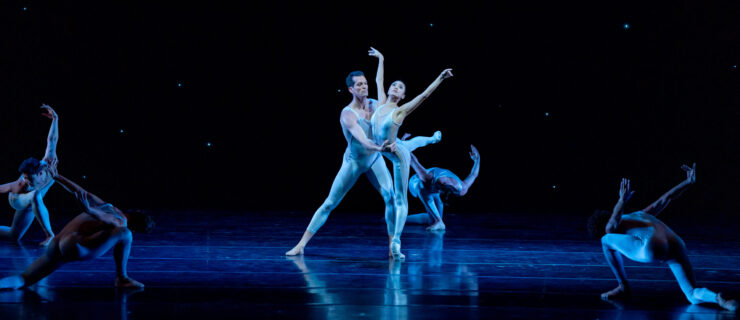Meet Sae Eun Park, the Paris Opéra Ballet’s Newest Étoile
June 10, 2021, will not only go down as a monumental date in Sae Eun Park’s career, but in the Paris Opéra Ballet’s 352-year history. Following her debut as Juliet in Rudolf Nureyev’s Romeo and Juliet, Alexander Neef, general director of the Paris Opéra, and Aurélie Dupont, the ballet company’s artistic director, walked onstage to announce Park’s promotion to danseuse étoile, or principal dancer, becoming the first Korean woman to achieve the rank since the company’s founding.
Park joined the Paris Opéra Ballet in 2012 after a year as a supernumerary. Her repertoire with the company includes Tatiana in John Cranko’s Onegin, Odette/Odile in Nureyev’s Swan Lake, Alexei Ratmansky’s Seven Sonatas, and new works by Benjamin Millepied (La Nuit s’Achève) and Justin Peck (Entre Chien et Loup). She was also the 2010 gold medalist at the Varna International Ballet Competition and the 2018 female recipient of the Prix Benois de la Danse.
Park recently talked to Pointe about her milestone achievement and more.
How did you end up joining the Paris Opéra Ballet?
I couldn’t join American Ballet Theatre after spending one and a half years at ABT II [now the ABT Studio Company], so I returned to Korea. I was happy to be with my family and friends, and to be dancing as a soloist at the Korean National Ballet. But deep down, there was also the aspiration to experience more in a wider world, and that desire led me to the Paris Opéra Ballet. My YouTube watchlist was filled with videos of POB, and I was enthralled by the movements of the beautiful dancers. Without much plan or thought, I packed my bag and flew to France to attend the company’s open audition. Being in the enormous theater itself was overwhelming, and I didn’t have any expectations—or regrets—after finishing my audition. As I was about to leave France, I received a phone call: “Would you accept our offer to sign a one-year contract?” I said “Yes!” without any hesitation.
There is a lot of discussion these days around bringing more diversity to ballet. Have you ever experienced any challenges being an Asian dancer in the ballet world, particularly in Europe?
As an Asian, I did sometimes question myself and whether I could ever become an étoile. The answer? Yes, it is possible. I am extremely grateful. As a ballerina, I invested a lot of effort, and there were many challenges which I had to overcome, but I’m sure that this was the same for my French friends. I’ve always been treated the same way as my French colleagues, and we all had to go through the same difficulties. ‘Étoile’ is a challenging title to receive for anyone, but with talent and effort it is possible, regardless of nationality or skin color.

Did your promotion come as a surprise to you or were you expecting it? How did you feel when it was announced after your performance of Romeo and Juliet?
I thought I was dreaming when it was announced; no one had informed me about it, so it was a complete surprise. I did, however, get the feeling that there were people who were hoping for my promotion, but I tried to stay calm and remain focused on my performance. It was a very important performance for both the theater and myself, since it was the first time in front of an audience after a long and tough period with COVID-19. I wanted to pour everything out.
You are the first Korean ballerina to be named a danseuse étoile in the company’s history. What does that mean to you?
I don’t think I’ve had difficulties because of the fact that I am an Asian dancer. What was challenging for me was moving to a new country, learning a new language and adapting to a new culture. The process of changing from the Vaganova style to the French style was very difficult.
Focusing on my dancing, I waited and believed that I could become an étoile when I was ready. People give me a big hand for giving up everything and starting over, but I actually didn’t find that difficult at all. It was rather fun. The hardest thing for me were the questions I had about my identity as a dancer. But now, I no longer feel obliged to heavily depend on or reflect the Russian, Korean or French styles of ballet.
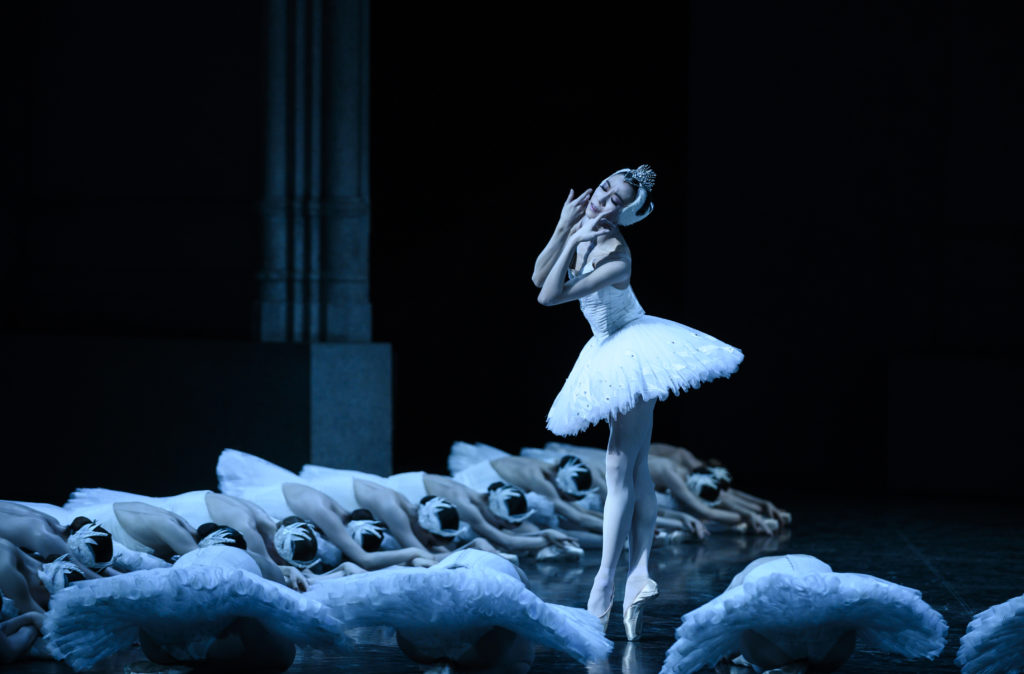
What are your goals now after achieving this big step in your career?
There are countless roles and ballets I haven’t done yet. I want to meet as many roles, ballets and choreographers as possible and expand my capabilities as an artist.
What advice do you have for young dancers who hope to follow in your footsteps?
I would encourage them to see a lot of performances in person. Sometimes dancers are reluctant to watch other people’s performances because they fear that their identity as an artist will be confused. However, from my experience, the more ballet performances I watched, the more inspired I was.
